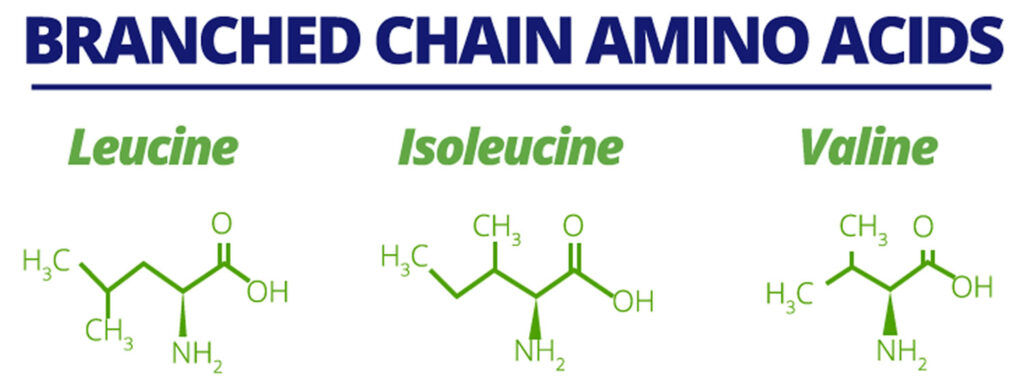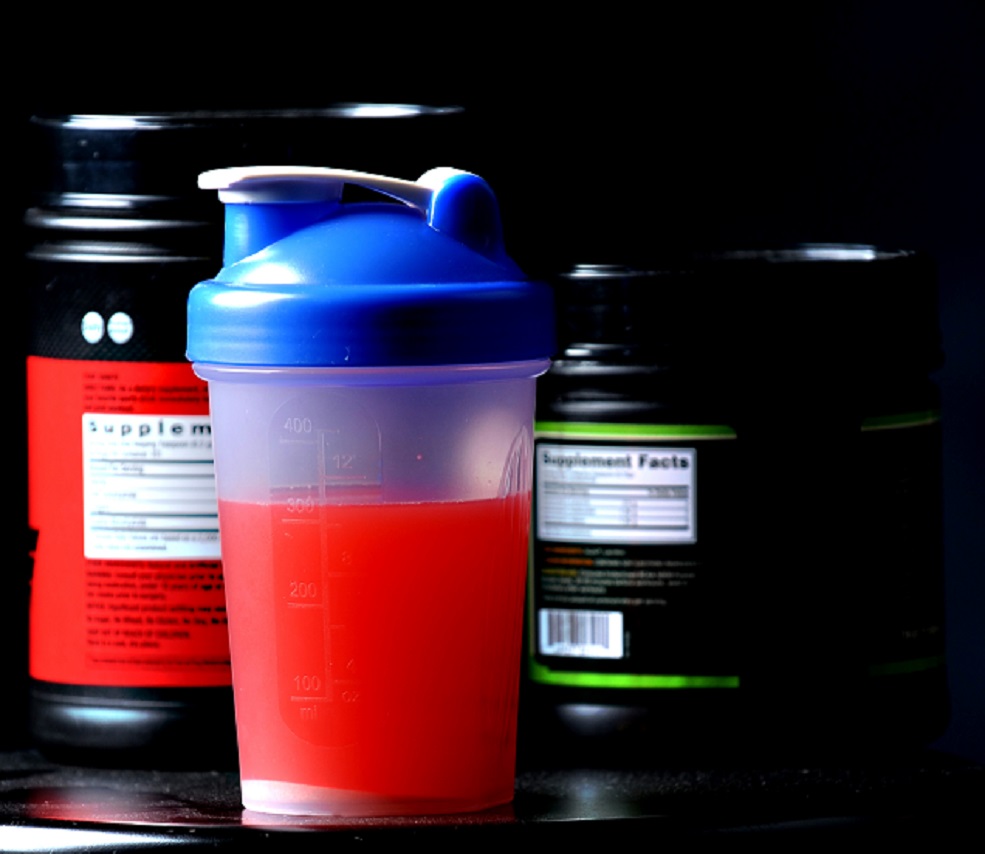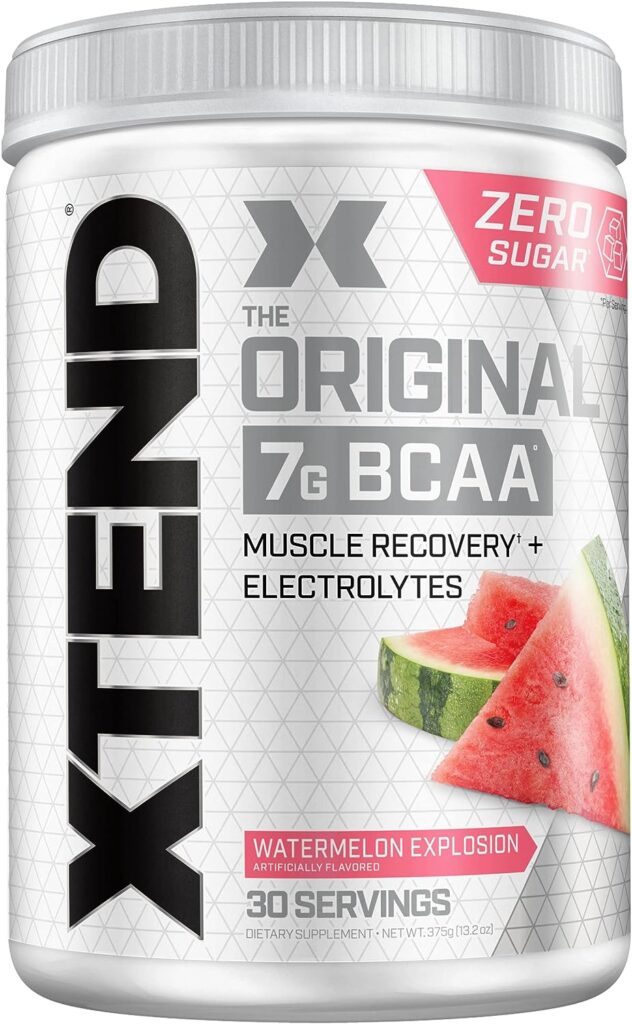BCAAs (branched-chain amino acids) have been one of the more popular workout supplements of this century. But why? Does anyone notice a significant difference in their workout performance, recovery, or strength and muscle gains if they do or don’t supplement with BCAAs? Or has it all been a very successful marketing ploy by the supp industry? The Barbell investigated to see what the science says: Do BCAAs work?
What are BCAAs?
There are 20 amino acids, the building blocks of protein, and nine of these are essential amino acids (EAAs), meaning they have to come via your diet. (The other 11 non-essential amino acids can be made by your body.) BCAAs consist of three essential amino acids—leucine, isoleucine, and valine—and are called “branched-chain” because of their molecular structure. This structure allows BCAAs to be more easily ingested and transmitted to your muscles than the other six EAAs. Leucine is especially important for stimulating muscle protein functioning.

Why do people supplement BCAAs?
BCAAs can be ingested anytime. But they’re marketed as workout supplements: Take them just before, during, or just after a workout. Mix them in water, and sip them between sets. The pitch is that these three essential aminos, especially leucine, are the advance troops that get to your muscles first and are integral for muscle functioning and will thus reduce fatigue and soreness for better workouts and boost strength and as well as workout recovery and growth. And all of this from a 5-gram scoop of flavored powder.
Do BCAAs work?
There are studies that show some minor benefits. In a study of untrained men, participants had a reduced perception of exertion when ingesting BCAAs before and during cycling tests. However, there was no meaningful difference in their performances. The study concluded: “BCAA supplementation, although effective at increasing blood concentrations of BCAA, did not influence aerobic performance…” So, you might think you’re working less hard, but you’re not actually working any more efficiently.

Let’s turn to the weights. Another study, focused on experienced subjects performing resistance exercises while supplementing BCAAs, found “no effects on dynamic functions of muscle function” but concluded BCAAs “resulted in decreased perceptions of soreness.” So, again, you might think things are going easier (reduced soreness), which might allow you to work harder. However, the study’s authors concluded: “When consumed with a diet consisting of 1.2 g/kg/day protein and presumably higher daily protein intakes, it appears BCAA effects on muscle recovery are negligible.”
Finally, let’s look at a 2017 scientific review of all previous studies, until then, of BCAAs. Here is its conclusion, which is filled with “science-speak” but really zeroes in on the shortcoming of BCAA supplementation:
A physiologically-significant increase in the rate of muscle protein synthesis requires adequate availability of all amino acid precursors. The source of EAAs for muscle protein synthesis in the post-absorptive state is the free intracellular pool. Intracellular free EAAs that are available for incorporation into protein are derived from muscle protein breakdown. Under normal conditions about 70% of EAAs released by muscle protein breakdown are reincorporated into muscle protein. The efficiency of reincorporation of EAAs from protein breakdown back into muscle protein can only be increased to a limited extent. For this fundamental reason, a dietary supplement of BCAAs alone cannot support an increased rate of muscle protein synthesis. The availability of the other EAAs will rapidly become rate limiting for accelerated protein synthesis. Consistent with this perspective, the few studies in human subjects have reported decreases, rather than increases, in muscle protein synthesis after intake of BCAAs. We conclude that dietary BCAA supplements alone do not promote muscle anabolism.
It’s best to ingest all nine EAAs together. This can be done with an EAA supplement, but those are not cost-effective. Better is a protein source that includes all nine: whey powder or a food source, preferably animal-based: beef, chicken, fish, dairy, etc. (Vegans can get all nine together from a few plant sources, including quinoa, chia, and spirulina, or by combining non-animal foods.)
BCAAs have been marketed as fast-acting super aminos that have unique, positive effects. Leucine does stimulate muscle protein synthesis, but BCAAs have not been proven to make a meaningful difference in workout results.
Should you supplement with BCAAs?
Ultimately BCAAs are just three of the nine essential building blocks of protein. You need all nine. Branched-chain amino acids consist of one-third of the aminos you need to build muscle. You would be better served adding some whey isolate (the fastest-acting whey protein) to your workout water jug. And doing so is much cheaper. Five grams of whey isolate—complete protein—will cost you about ten cents. Five grams of BCAAs—incomplete protein—will cost you at least 70 cents! For 70 cents, you can get 35 grams of whey isolate. And now we’re talking about something that can truly aid workout recovery and growth. (See also: How much protein should bodybuilders consume?)

But what about the flavors? It’s hard to find a raspberry lemonade or cherry bomb whey protein. We agree that BCAA powders are usually pretty tasty ways to flavor your workout water, and if you can find your favorite BCAA drinks on a big sale, taste alone might be a reason to stock up. Otherwise, BCAAs are still much better for the supp companies than you and your bank account. Typically, you can buy your favorite water flavors for less than half the cost, per serving, of a BCAA powder. Add a tasty water enhancer to your workout water jug, with or without some flavorless whey isolate, and you’re good to go.
DO BCAAS WORK?: CONCLUSION
Not really. BCAAs are not a horrible supplement. But they are an overly expensive one. Don’t believe the hype. There are better and much cheaper ways to fuel your workouts and post-workout recovery.
















































